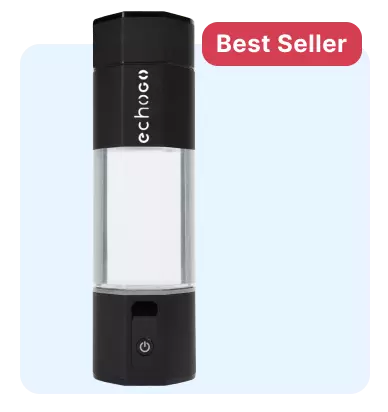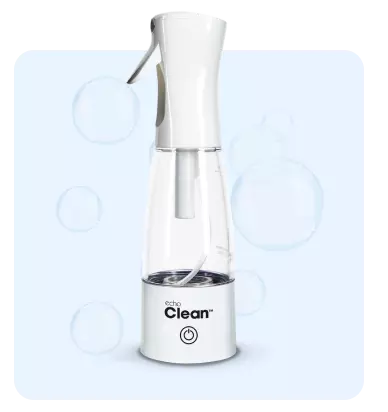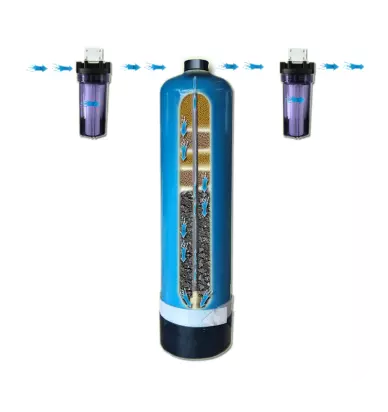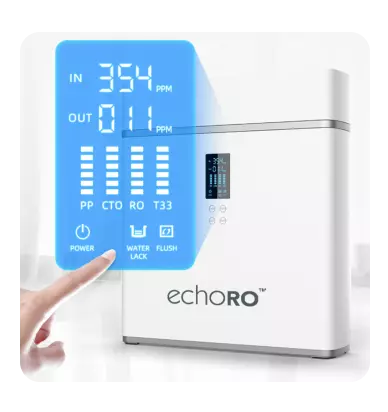Inflammation can sound scary, but it’s actually a crucial defense mechanism our bodies use to heal. The problem with inflammation comes when it goes rogue, leading to chronic inflammation, which is linked to everything from arthritis and asthma to heart disease and autoimmune disorders.
But before you resign yourself to endless medications, take heart. Nature offers a plethora of potent anti-inflammatory solutions. Whether you’re ready to swap out your favorite junk foods for some easy superfoods or try some simple stress-busting techniques, we’ll share eight of our favorite—and natural—ways to combat inflammation and reclaim your health. So, ditch the worry, and check out these tried-and-true inflammation fighters:
1. Hydrogen Water
Hydrogen water—purified water infused with hydrogen gas—has been generating a lot of buzz for its potential anti-inflammatory effects. Hydrogen works as a powerful antioxidant and has the ability to neutralize harmful free radicals that contribute to inflammation. Studies also suggest that hydrogen water could influence the expression of genes involved in inflammation, thereby reducing inflammatory responses.
Regularly drinking hydrogen-rich water (HRW) can alleviate inflammation, reduce fatigue, and improve overall health. Explore some of the most advanced hydrogen water products here.
2. Berries
Berries pack a powerful punch against inflammation thanks to their abundance of bioactive compounds, like anthocyanins and ellagic acid. Anthocyanins are responsible for those eye-catching red, blue, and purple hues often seen on our favorite berries. Studies suggest that anthocyanins act as antioxidants and neutralize free radicals that fuel inflammation. Ellagic acids, which are found most abundantly in strawberries and raspberries, dampen inflammatory pathways.
So, what berries are the most effective in the fight against inflammation? Here are the top 4:
- Strawberries
- Blackberries
- Cranberries
- Blueberries
3. Green Tea
Green tea isn't just a refreshing drink; it's a powerful anti-inflammatory thanks to its treasure trove of beneficial compounds. The star player in the battle against inflammation is epigallocatechin-3-gallate (EGCG). This antioxidant combats free radicals. EGCG works by diminishing inflammatory pathways, including the NF-κB pathway, a key player in chronic inflammatory diseases.
But EGCG isn't alone! Green tea boasts other inflammation-fighting allies like theaflavins and thearubigins, further bolstering its anti-inflammatory potential.
4. Fish Oil
Fish oil is brimming with omega-3 fatty acids, like EPA and DHA, which is a powerful ally in the fight against inflammation. Here’s how these “good fats” work to reduce inflammation:
- Modulates inflammatory pathways: EPA and DHA compete with inflammatory omega-6 fatty acids for enzymes, essentially "downregulating" the production of inflammatory molecules, like prostaglandins and leukotrienes.
- Reduces pro-inflammatory markers: Fish oil consumption decreases circulating levels of inflammatory markers like C-reactive protein (CRP) and interleukin-6 (IL-6).
- Resolves inflammation: Omega-3s promote the production of specialized pro-resolving mediators (SPMs), molecules that actively "resolve" inflammation by clearing debris and promoting tissue repair.
5. Fiber
Fiber, the indigestible part of plants, might seem surprising in its ability to fight inflammation, but it packs a powerful punch! Here's how:
- Feeds good bacteria: Fiber acts as a prebiotic, which feeds the good bacteria in your gut. These happy microbes ferment fiber, producing beneficial short-chain fatty acids (SCFAs). SCFAs dampen inflammation by reducing the production of inflammatory molecules and strengthen the gut barrier, your body's first line of defense.
- Reduces inflammatory markers: Studies show a link between increased fiber intake and lower levels of inflammatory markers like C-reactive protein (CRP) and interleukin-6 (IL-6).
- Manages weight: Excess body weight is linked to chronic inflammation. Fiber's satiating properties and ability to promote blood sugar control may help with weight management, indirectly reducing inflammation.
So, what kids of fiber should you add to your plate? Consider these:
- Fruits: Berries, apples, pears, and citrus fruits
- Vegetables: Leafy greens like spinach and kale, broccoli, carrots, and sweet potatoes
- Legumes: Beans, lentils, and chickpeas
- Whole grains: Oats, quinoa, brown rice, and whole-wheat bread
6. Ginger
Ginger’s anti-inflammatory magic lies in its active compound, gingerol, which boasts several inflammation-fighting mechanisms. Gingerol targets COX-2 and cytokines, molecules involved in inflammation, and effectively dampens their activity. It also interacts with specific immune cells, reducing their inflammatory response and promoting their ability to regulate inflammation. And Gingerol acts as a powerful antioxidant by neutralizing free radicals that contribute to inflammation and tissue damage.
Here are some simple ways you can incorporate ginger into your daily routine:
- Brew a cup of ginger tea
- Use grated or powdered ginger in your foods and smoothies
- Snack on crystallized ginger
- Add slices of ginger to your water
7. Exercise
Exercise isn't just good for your heart and waistline; it's also a powerful tool to tame inflammation. Here are three ways exercise helps reduce inflammation:
- Releases Beneficial Molecules: Muscles release beneficial molecules, like interleukin-6, that dampen inflammation throughout the body. Which means your muscles are kind of like an anti-inflammatory factory. Regular exercise boosts this production, effectively keeping inflammation in check.
- Reduces Stress: Exercise acts as a natural stress reliever, reducing levels of cortisol, a hormone known to exacerbate inflammation. Whether it's a brisk walk or a jog, physical activity helps you de-stress and create a calmer internal environment.
- Improves Blood Flow: Exercise improves blood circulation, delivering oxygen and nutrients to tissues while flushing out inflammatory waste products. This enhanced flow helps promote healing and reduces inflammatory markers.
8. Sleep
Adequate sleep isn’t just about feeling well-rested the next day; sleep is actually a powerful tool to combat inflammation. Here’s the science to back it up:
- Hormone Balance: Deep sleep promotes the production of anti-inflammatory cytokines, like interleukin-10, while suppressing pro-inflammatory ones like interleukin-6. This hormonal reset helps maintain a balanced internal environment, reducing inflammation throughout the body.
- Healthy Immune System: Sufficient sleep bolsters your immune defenses, equipping it to effectively combat inflammation and promote healing.
- Stress Management: Chronic stress fuels inflammation, and lack of sleep exacerbates the problem. By winding down and prioritizing quality sleep, you help manage stress hormones like cortisol, creating a calmer internal environment that naturally reduces inflammation.
- Cellular Repair: Deep sleep is when your body goes into repair mode, clearing out cellular debris and waste products that contribute to inflammation. This restorative process helps maintain tissue health and reduces the inflammatory burden on your body.
To get the most anti-inflammatory benefits from sleep, be sure to get 7-8 hours of sleep each night.
Well, you just made it through a crash course in the molecules and compounds associated with inflammation in the body. But now you also know the best weapons to use in the fight against chronic inflammation. Remember, the best way to improve health is to start with small, manageable steps. So, raise a glass of hydrogen water, savor a bowl of antioxidant-rich berries, and prioritize restful sleep, and start experiencing the difference these small changes can make to your overall well-being.
Disclaimer: This information is for educational purposes only and should not be construed as medical advice. Please consult with a healthcare professional before making any changes to your diet or lifestyle.










Leave a comment
This site is protected by reCAPTCHA and the Google Privacy Policy and Terms of Service apply.